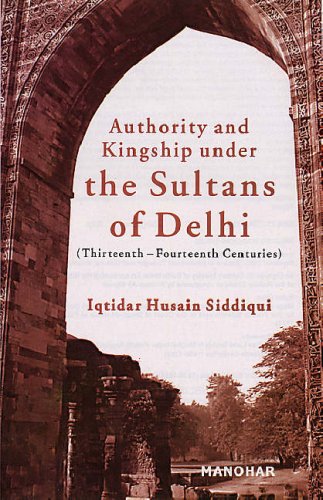AUTHORITY AND KINGSHIP UNDER THE SULTANS OF DELHI (THIRTEENTH-FOURTEENTH CENTURIES)
AUTHORITY AND KINGSHIP UNDER THE SULTANS OF DELHI (THIRTEENTH-FOURTEENTH CENTURIES)
Couldn't load pickup availability
The Ghurian conquest of north India towards the close of the twelfth century led to the introduction of Sultanate polity which had evolved in Central Asia. This in turn led to important changes in the country's cultural and administrative systems. The job opportunities created by the Sultanate attracted people of talent and learning who emigrated from the neighbouring countries and settled in different towns and cities. The mingling of people belonging to different countries and traditions galvanised the process of synthesis that provided variety and richness to life. The close relationship between the royal court and the landed aristocracy resulted in the development of the culture of shared values which come to be known as India's composite culture. As no serious attention has so far been paid to the study of institutions, rituals and traditions associated with the Sultanate polity, an attempt has been made in this volume to study in detail the nature of the Sultanate polity and its impact on medieval Indian society
Share

